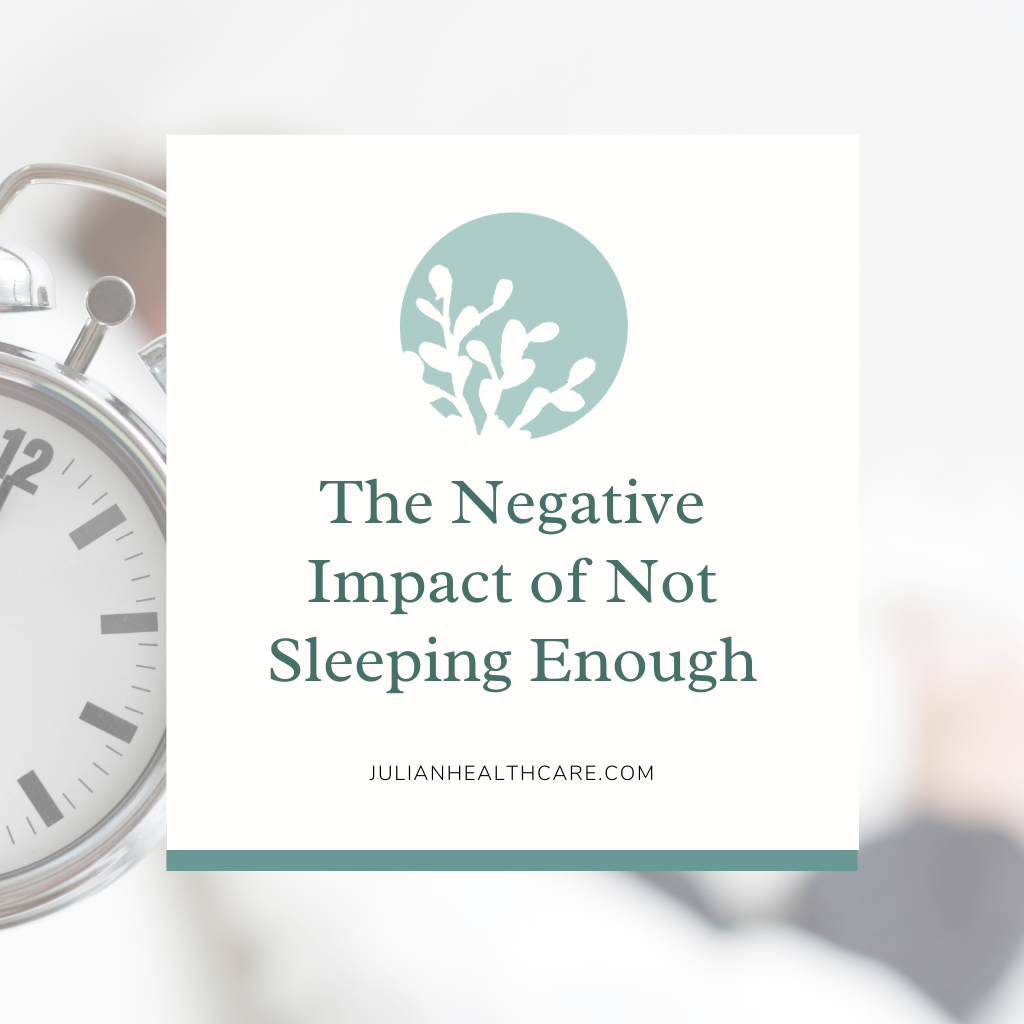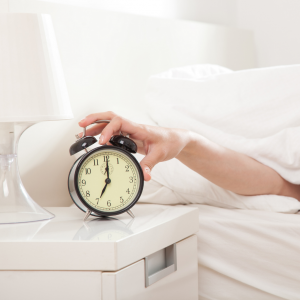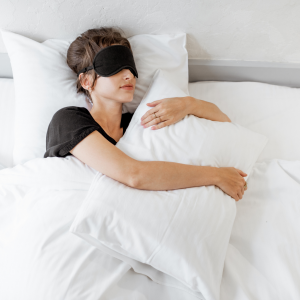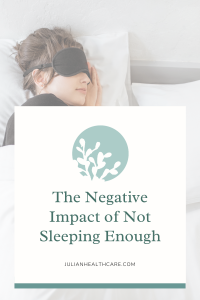Most of us love to get a lot of good sleep but I do meet people who tell me that all they need is four to five hours of sleep. Research shows that if you consistently get less than six hours of sleep, you’re going to be overweight and at risk for many health issues. If you want to make sure to prevent health issues, you need to be getting rockin’ good sleep!
Adults need 7 to 9 hours of great, uninterrupted sleep to heal their bodies and to recharge. When you don’t sleep well, your cortisol level goes up. When your cortisol level goes up, your adrenaline goes up and that puts stress on your adrenal glands.
Not sleeping enough affects your hormones
When your body is stressed, it goes into preservation mode. So, all the functions of the body that don’t necessarily have to happen are put on hold. Reproduction is a good example of that. When you’re stressed, the brain thinks that you’re being chased by a lion and that it is not the right time to have a baby, so you stop ovulating. Even just a few nights of poor sleep can decrease ovulation.
As we have talked about before, if you don’t ovulate, you don’t produce progesterone. If you aren’t producing progesterone then you will most likely feel anxious, sad, have aching muscles, your brain might feel foggy, and you can’t sleep well. It becomes an endless cycle! Something else that happens if you don’t ovulate and don’t produce progesterone, your endometrial lining builds up. That will cause heavy, irregular periods.
High cortisol levels affect every other hormone in the body. It affects progesterone, estrogen, testosterone production, insulin, etc. When cortisol goes up, blood sugar goes up, which means that insulin also goes up. Insulin is another hormone that plays an important role in the dance with our other hormones…such as our sex hormones and our thyroid hormones.
When the pituitary gland and the hypothalamus in the brain are receiving all these stress signals, they send out other signals to the thyroid and to the ovaries causing the thyroid and ovaries to not work as well as they should. Which results in you not ovulating and having poor thyroid function.
You can really do your body a great service by getting a good night’s sleep on a consistent basis.
How to get rockin’ good sleep
Now that you know how important it is to get plenty of good sleep, let’s talk about how to do it. The sleep-wake cycle is an important circadian rhythm that you need to keep healthy. When your circadian rhythm gets out of balance, it affects your hormones. There are plenty of things you can do to help your sleep-wake cycle. Here are just a few of them:
- Go to sleep and wake up around the same time every day.
- In the morning and throughout the day, spend time getting some sunshine.
- Decrease the light in your house around bedtime and try to avoid blue light altogether right before bed.
- Move your body throughout the day and exercise before 6 pm.
- Limit caffeine after 2 pm, earlier if you are sensitive to it.
- Eat whole foods and cut down on sugar and other processed foods.
- Keep cell phones and other electronic devices at least 8 feet from your bed.
- Take a warm Epsom salt bath before bed. Epsom salt is magnesium & helps us relax.
- Practice mindful breathing.
These are just some of the things you can begin to do as a part of a healthy sleeping routine. Sometimes supplements or vitamins may be necessary to give you a little extra help to get good sleep. If you’ve tried changing your lifestyle and you still aren’t getting lots of quality sleep, schedule an appointment* with us so we can investigate!
*If you’re not a current patient, click here to schedule a discovery call with Susan to see if Julian Healthcare is the right fit for you!




